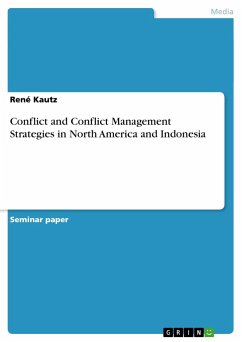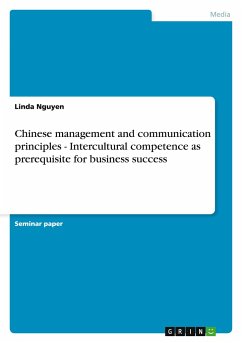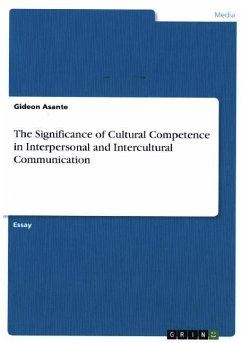Seminar paper from the year 2004 in the subject Communications - Intercultural Communication, grade: 2 (B), Hamburg University of Applied Sciences (Economics), course: Intercultural Communication, language: English, abstract: Through the process of globalization, managers often have to deal with people from other countries with different cultural backgrounds. This cultural background includes not only the language; it means a completely different way of feeling, thinking, behaving and as a result also conflict management. Constructive conflict management is a competence which is of particular importance in international management. Furthermore, in an intercultural context, a manager not only needs to know how to handle conflicts in general, but also how his negotiation partners usually deal with them. This is important because the right way to solve a conflict i. e. in North America is not necessarily the right way in Indonesia. When coping with conflicts in international business negotiations, international managers must be aware of the fact that appropriate ways of solving conflicts in Western cultures like North America can very often be completely unacceptable in Asian cultures like Indonesia. The aim of this paper is to analyse typical conflict management strategies in North America and Indonesia, thereby highlighting major differences in appropriate conflict management between them.








